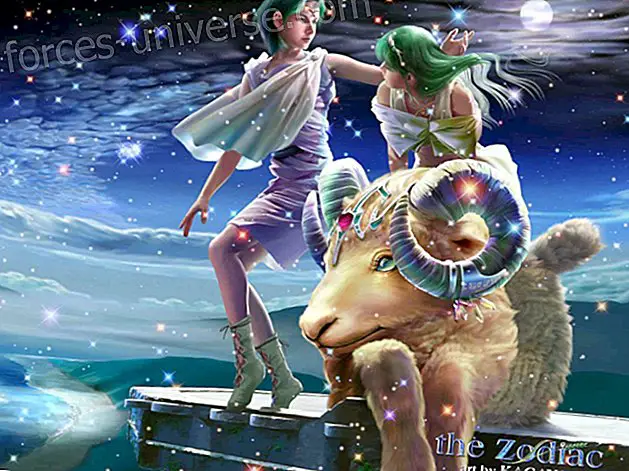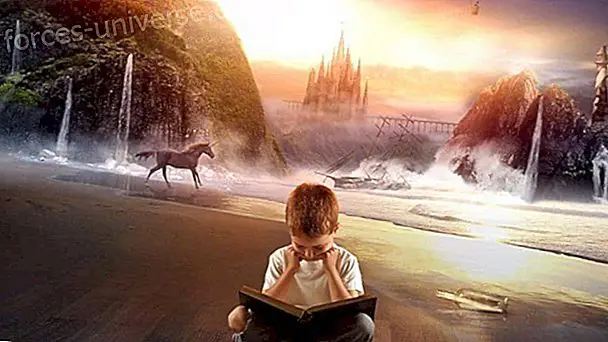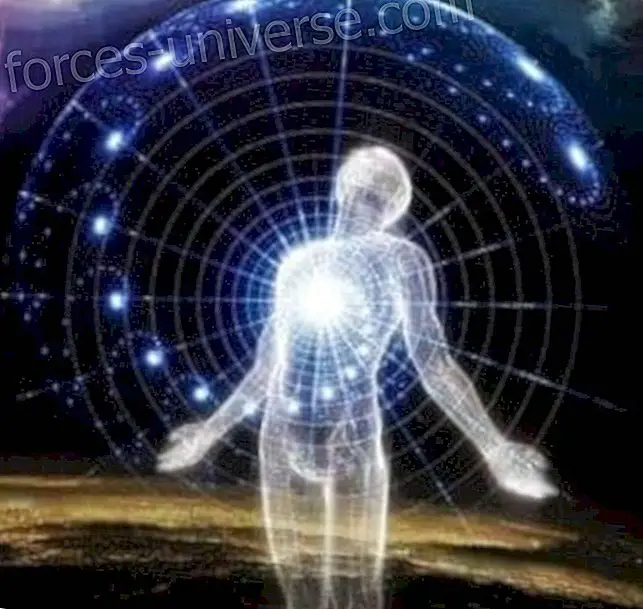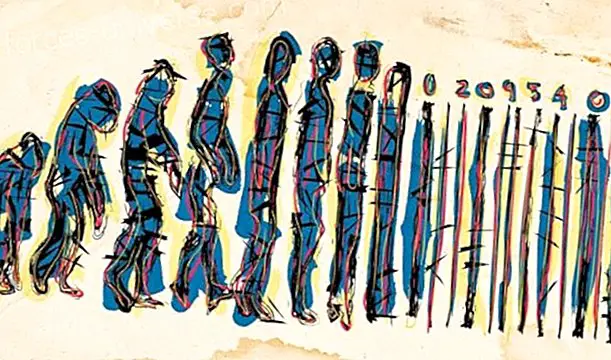
"Look deeply into nature and then you will understand everything better."
Albert Einstein.
Man and Nature
Throughout history, man and nature have had a contradictory and changing relationship. Who has never heard of Mother Nature?
However, our treatment of her is far from the respect due to a mother .
Again, our thirst for power leads us to separate it from us to engage in a constant war to control it.
Although this confrontation is not something intrinsic to the human being. In fact, it is a paradigm that begins to arise around the seventeenth century.
What has led us to this positioning so inconvenient?
Man and nature through time
Over time, the man-nature relationship has evolved.
The human being has always depended on nature to survive. At the beginning of time, one lived in harmony with her. The seasons indicated the moment to gather fruits, to hunt, to migrate.
Day and night marked the beginning and end of the day. The sun gave life, illuminated and warmed the earth.
Mother Nature provided everything necessary to live, and man admired her.
With the passage of time, the reverence of man towards nature evolved to a more conceptual level.
Ancient philosophers understood that knowledge was given through the contemplation of the world around them . The question they sought to answer was oriented to what united all things that were, including man.
Saint Augustine and Saint Thomas, main thinkers of the Middle Ages, saw in nature a free creation of God . This remitted them and brought them closer to Him, and allowed them to participate in his greatness.
Every entity that existed received its existence from a Higher Being.
Around the 17th century, Francis Bacon, an English thinker, began to propose a new form of knowledge: practical knowledge . In this way, observing nature was of no use if the information needed to manipulate it was not extracted from it. It was the birth of a new paradigm in which man is the protagonist and owner of nature.
This paradigm survives to this day and puts us in a privileged position. Nature is no more than a tool in the path of man .
And it is he who gives the essence depending on his own ends.
How could it be otherwise, the consequences of extracting the human being from this organism of which he participates are not hopeful at all.
Uses and abuses of natural resources
Over the past 500 years, the anthropocentrism of man has given rise to stop recognizing nature as what we are part of. The consumerism of the human being puts the ecological balance at risk, and therefore its own balance.
Nature is itself a living organism to which we belong . He also has, like us, the ability to self-regulate. The action of man affects this ability and the response to this is not long in coming. Sudden changes in weather cause catastrophes such as floods, tsunamis, droughts, hurricanes. The ozone hole and global warming, although they may vary the metabolism with which they develop, are irreversible processes.
On the other hand, man is eager to meet again with what to be part of. The light and heat of the sun, which helps us synthesize vitamins. The contact of our bare feet with the earth, which helps us to discharge our energy and renew it. Pure water and air, fundamental for the proper functioning of the different organs of the body. The silence, the peace of an afternoon away from the city.
The endless astonishment of contemplating nature and witnessing the miracle of existence. Respect for what is on earth at the same time as us, and even much earlier. That of what we are brothers.
Understand that if we go back in time, every living being has an ancestor in common with you .
Relationship of man with nature today

At present, man's relationship with nature urges us to become aware. Gradually, expressions such as "sustainable economy", "green marketing", "eco-friendly" begin to echo.
And the reality is this: it is time to start taking charge of the role that touches us.
Fortunately, there are many respect practices that we can implement in our day to day.
1. Trash in the basket
It is a basic norm, but often it is not completely respected. In the rush that involves carrying out a routine, we are not used to stopping and looking for where to throw our waste in the street. In addition to this, some cities do not have a correct distribution of trash cans. That makes the citizen have to travel blocks before finding where to throw their waste.
This has an impact on ecological health, in addition to denoting a lack of awareness in nature. Think, if your guests threw cigarette butts on the floor, what would you do?
2. Recycle
Recycling is one of the closest practices to the definition of respect for nature . Some waste, such as plastic, takes thousands of years to degrade and be assimilated again by the environment. Selective waste collection helps us reuse those that are not easily degraded. Organic, which nature absorbs more quickly, can be implemented as fertilizer.
If you want to recycle but do not know where to start, here are some interesting ideas.
3. Respect the vegetation
Remember that plants are living beings that often take years to reach adulthood . The lack of understanding of the importance of vegetation culminates in them being victims of indiscriminate aggressions.
Stefano Mancuso, a global expert in plant neurobiology, says that they have an extraordinary sensory capacity. They have more than 15 senses! They perceive light and other stimuli, they have odor receptor cells and through these they communicate with each other.
Plants also have the ability to renew the air in their process of photosynthesis. They are the lungs of the world .
4. Take care of the water
71% of the earth's surface is covered by water. However, drinking water only accounts for about 2% of that total. And it is going down.
Every living being needs water to survive. We ourselves are in 75% water. In addition, it has a thermoregulatory role on the planet . It is an ecosystem in itself, and it is from it that life developed as we know it.
We need it. Let's respect her.
When you are in the shower, remember that there are entire populations that do not have free access to drinking water.
Interaction of man with the environment

Man and the environment live in constant interaction. We live immersed in an ecosystem and are called to take care of it.
If we consume the planet faster than it can adapt, we will end up making it difficult to inhabit. But if we focus our action on reducing our environmental impact, we can live again in harmony with nature.
We are able to protect it, or consume it. And it all starts in consciousness with a change in attitude.
From nature we come and towards it we go.
Protect it, and protect us.
AUTHOR: Lucas, editor in the big family of hermandadblanca.org
Sources:
- https://www.colectivotandem.com/la-importancia-de-cuidar-y-respetar-la-naturaleza/
- https://www.enbuenasmanos.com/el-agua-potable-se-acaba
- https://www.lindau-nobel.org/plant-intelligence-our-5-senses-15-more/






